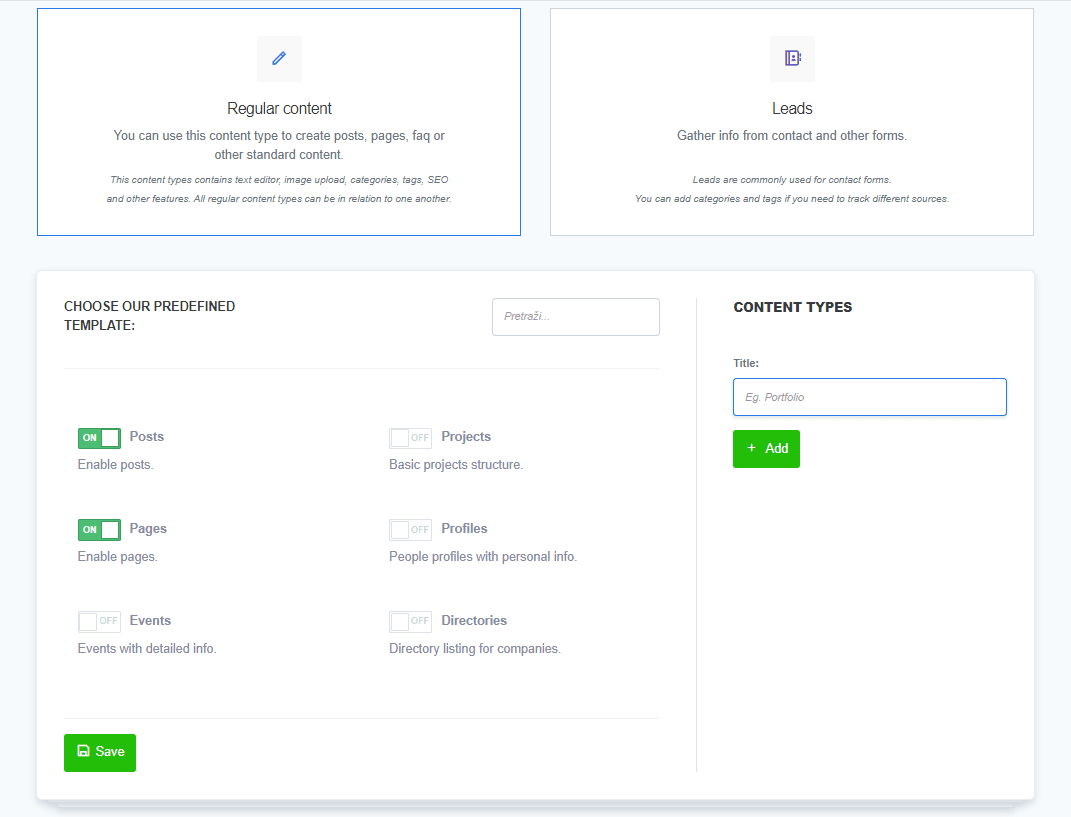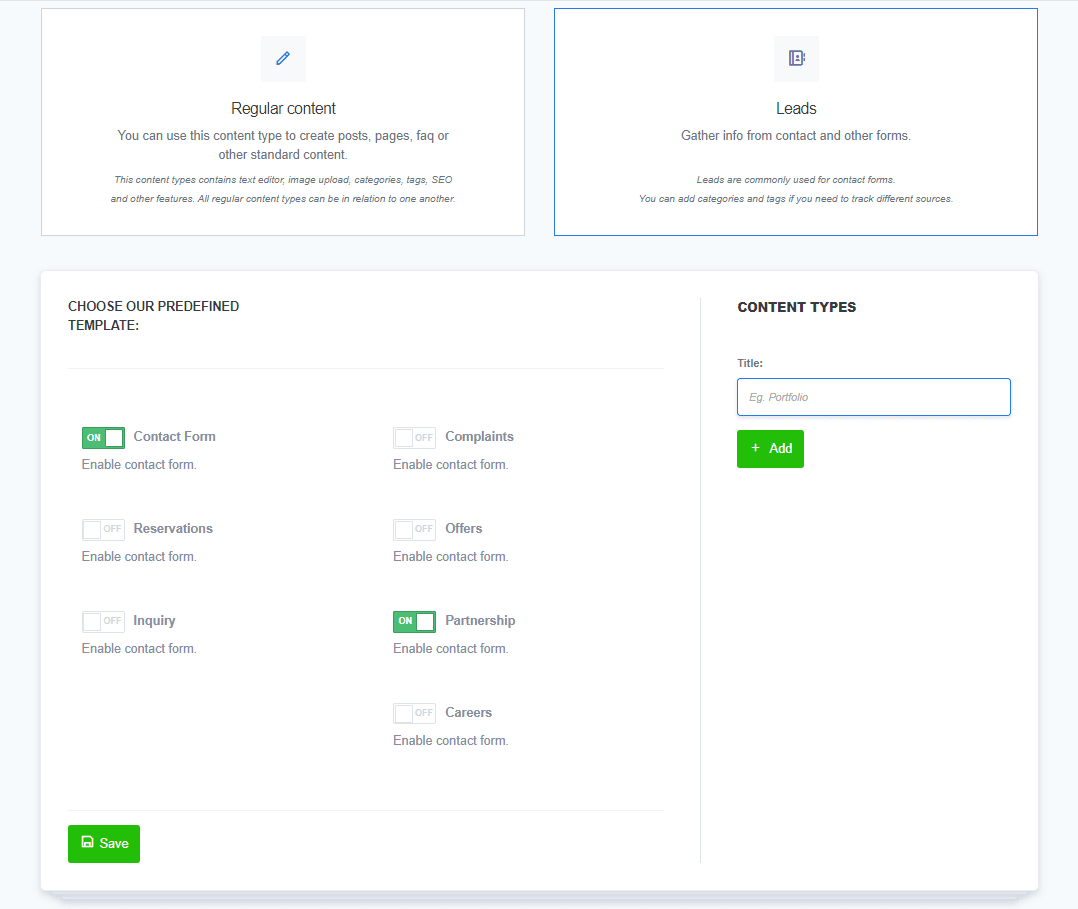Custom content types are the backbone of ReadyCMS, providing unparalleled flexibility and customization. Whether you're managing an online shop, a corporate website, a personal blog, or any other digital platform, these content types empower you to bring your vision to life.
Overview of content types in ReadyCMS

1. Regular content type
This encompasses the standard content you'd typically find on a website, such as pages, blog posts, and manuals. It's equipped with features like categories, tags, images, galleries, comments, reviews, and more.
You can either utilize our predefined templates or craft your unique content type.

If you want to read more about regular content types, check out the Regular content types page.
2. Leads
In the realm of sales and marketing, a lead signifies a potential customer or client. Depending on your industry, the Leads content type can encompass contact forms, reservations, complaints, and more.
Just like with regular content, you can either use our templates or design your own.

If you want to read more about Leads and lead management, check out the Leads page.
Tips for maximizing custom content types
- Tailored experience:
ReadyCMS's Custom content types are designed to be adaptable. Whether you're using predefined templates or creating your own, ensure they align with your brand and audience's expectations. - Consistent URL structures:
A well-thought-out URL structure not only improves user experience but also aids in SEO. Make sure your URLs are descriptive and consistent across the board. - Leverage additional fields:
These fields can greatly enhance the functionality and user experience of your site. Think about the unique needs of your audience and how additional fields can meet those needs.
Content-type features
ReadyCMS offers built-in content features that can be integrated with your content types, including:
- Categories and tags
- Images and galleries
- Comments and reviews
Learn how to enable these content-type features.
URL Structure
Craft a custom URL structure to enhance the aesthetics, usability, and future-proofing of your links. Dynamically build your URLs by incorporating available tags.
Learn how to configure the URL structure.
Additional Fields
Introduce a variety of additional fields to further customize your website. This allows you to integrate new functionalities without altering the core code.
Learn how to manage additional fields.